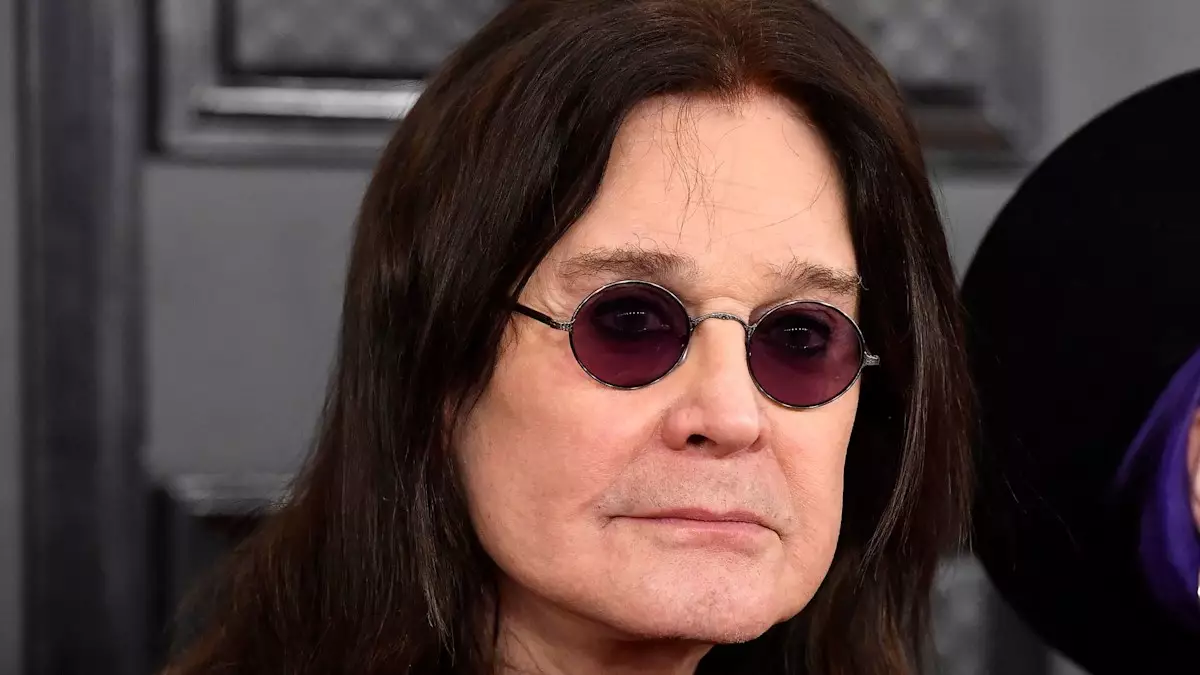The heavy metal landscape is shaking as Ozzy Osbourne prepares to take the stage one last time with Black Sabbath in July 2025. This iconic moment, set against the backdrop of Birmingham’s Villa Park, is not merely a concert; it stands as a testament to a music legend wrestling with his mortality and physical limitations. At 76, Ozzy has faced a myriad of health challenges, including a devastating spinal injury from 2003, complications from a fall in 2019, and the harsh diagnosis of Parkinson’s disease, which he publicly disclosed in January 2020. Yet, this aging rock star refuses to bow out quietly.
Ozzy’s steadfast promise to his fans exemplifies a spirit that is anything but defeated. His commitment to delivering “the greatest heavy metal show ever” reveals a deep-seated want to leave an indelible mark on his audience, even when his body’s capabilities are faltering. This concert represents not just a final bow for Osbourne, but also a riveting encore for Black Sabbath, whose original lineup will come together for the first time in two decades. The emotional weight of this reunion is amplified further by the fact that Osbourne’s health concerns loom large over the event.
Trials and Tribulations
Despite the well-documented physical hurdles he faces, Ozzy’s preparation for this monumental show has been both rigorous and heartfelt. He is not only working to maintain his strength through weight training and cycling but also receiving vocal coaching four times a week. This dedication underscores a profound truth about performance: it requires more than mere talent; it demands resilience, determination, and an unwavering work ethic. Yet, amidst this struggle, he remains painfully aware of his limitations, admitting that he no longer has the stamina to perform as he once did. His self-awareness in this regard is humbling and showcases a level of authenticity often masked by the glamor of rock stardom.
There’s an irony to the fact that rock stars—like Osbourne, once characterized by their wild lifestyles—eventually confront the consequences of their relentless pursuit of excellence in a scene notorious for excess. The narrative of the troubled artist is framed here in a light of introspection. As he candidly shares his struggles with mobility and blood pressure issues, one cannot help but admire his courage, especially in an industry that often fosters unrealistic standards of performance.
An Iconic Farewell
With the inclusion of an impressive supporting lineup of bands, including Metallica, Tool, Slayer, and Anthrax for the July concert, this farewell event is positioned to resonate deeply within the heavy metal community. However, Ozzy’s approach to it is refreshingly humble. His insistence that fans understand the show will not be a full-length performance is a responsible reflection of his current physical state. Yes, he acknowledges that they’ll be delivering just a few treasured tunes for the audience, ensuring everyone is clear on what to expect. This speaks volumes about his respect for the fans who have ardently supported him throughout the decades.
In his interactions, there exists a palpable longing for connection—a desire to bridge the gap between artist and audience, even as he prepares for his last performance. “I may be sitting down,” he admits, but the essence of Ozzy Osbourne lies not merely in movement, but in the spirit he embodies.
Reflections on Life Beyond Rock ‘n’ Roll
As he prepares for this final reunion, Osbourne’s reflection on his lifestyle choices reveals a unique perspective on his metamorphosis. He describes himself as a “homebody” who prefers to spend time with his family rather than partying in bars—a stark contrast to the larger-than-life persona he once exhibited. This evolution is a sobering reminder that life on the road, rife with both adoration and loneliness, has given way to a yearning for familial connection. He expresses his desire to enjoy a quiet life surrounded by his grandkids, hinting at a profound understanding of what truly matters as his twilight years approach.
It’s not just a concert; it’s a declaration of self-awareness against the backdrop of fame—an archiving of memories rather than a celebration of mythos. In many ways, heavy metal itself becomes a poignant metaphor for life: raw, visceral, and unyielding, embracing both victory and vulnerability. So while the curtain may fall on Ozzy Osbourne’s live performances, the legacy he leaves behind is far too vibrant to fade into obscurity. A final bow, indeed, but what a powerful finale it shall be.

